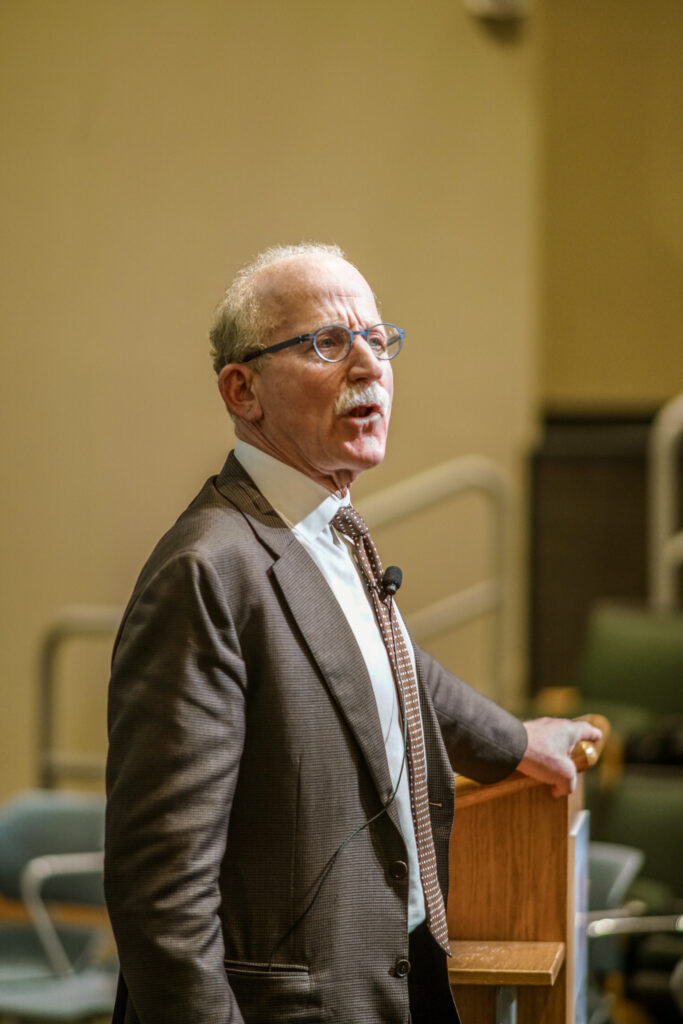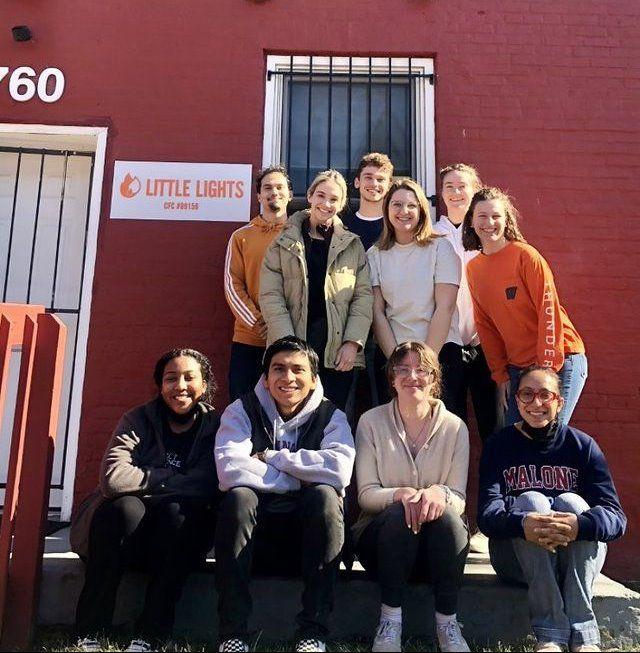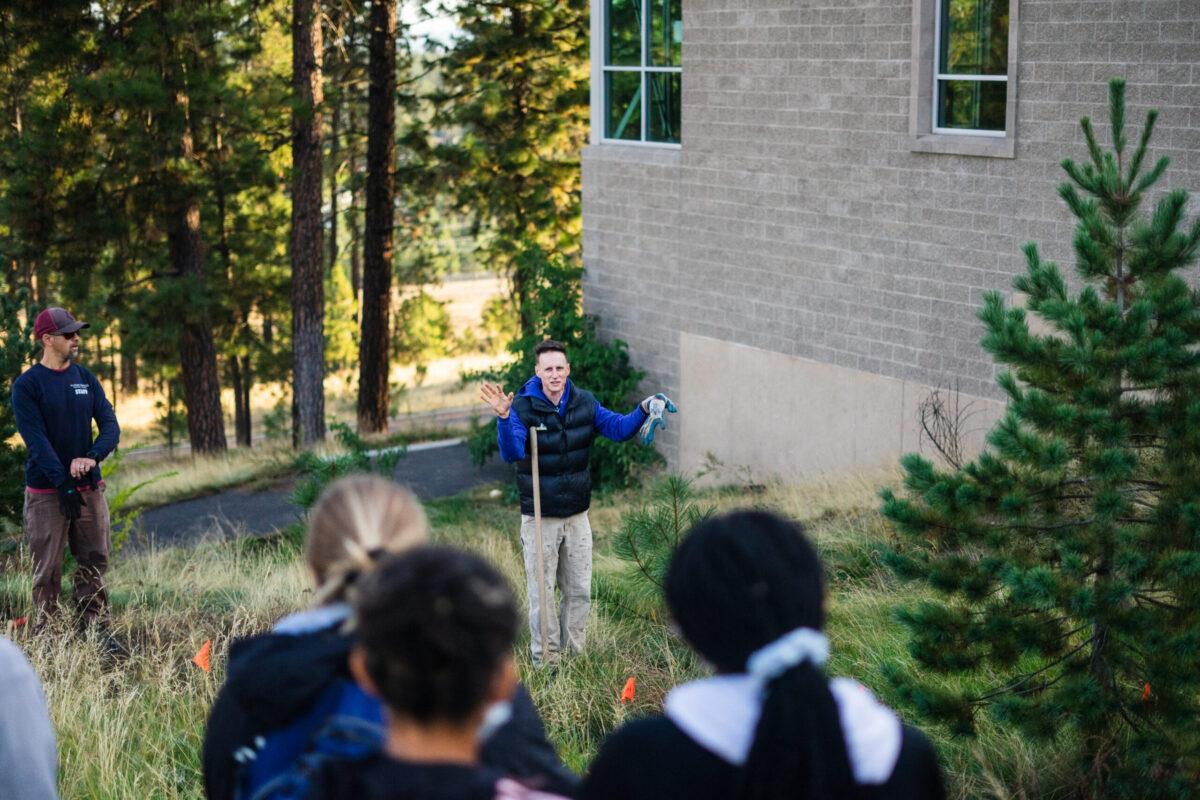
America is currently in the midst of its third biggest epidemic ever, right behind behind the Influenza Pandemic of 1918 that (that affected not just the United States) and the HIV epidemic from 1981-2005: the current Prescription Opioid epidemic.
On February 11, 2019, David Tauben, M.D. held a lecture titled “The Opioid Crisis in America” in the Robinson Teaching Theatre in Weyerhaeuser Hall.Tauben is a physician at the University of Washington Center for Pain Relief as well as being chief of pain medicine for UW Medicine.
While the lecture was scheduled to start at 7 p.m., poor weather conditions made Tauben’s trek from Seattle to Spokane quite the struggle.
“I almost cancelled five times, including when my plane was about to take off and then they turned it around…So, I went to the airline counter and they said they were going to get me out tonight no matter what; I was very happy to make the trek even in blizzard conditions.” Tauben said.
After a 45 minute delay, Tauben made his entrance into the auditorium with an audience of more than 60 students and faculty.
This lecture was the third annual bioethics symposium, hosted by Drs. Aaron Putzke and Dale Soden.
“We had the idea that it would be cool if we brought speakers to campus to speak on bioethics topics,” Putzke said.
The last two years other speakers were brought in to speak on the topics of genome editing and longevity. “The Opioid Crisis in America” is also apart of the Weyerhaeuser Center for Christian Faith & Learning lectures series for Spring 2019.
“This is important because it is a timely topic that is receiving more and more media coverage. Also, opioid addiction is so different then stereotypical drug addiction,” Putzke said.
Tauben laid out three objectives for his presentation: describe factors that lead to the syndemic (Tauben’s word for a synchronous epidemic) of poor paincare and opioid addiction, defend public health policy measures taken in response to opioid-related overdose death and delineate ethical issues related to opioid prescribing practices and policies.
Beginning with a brief history of pain, Tauben spoke about what pain is, how it affects people and current ways of treating pain and how that has caused this epidemic.
“We’ve been doing poor pain care ever since we learned to do it right back in the 1970’s… Less drugs and more behavioral and physical training, and self-management directed to recovering meaning and purpose in the face of pain,” Tauben said.
Before Tauben even began work at UW and became a strong force in opioid regulation legislation, he was an adult primary care doctor. In his practice, one thing he found was that pain often correlated with adverse childhood events and adverse community environments.
“I learned from many of my earlier patients, who let me in on their secret shame and fears, and yet at that time I didn’t realize that was the problem.” Tauben said. “That secret was that adverse early life and adverse community environments were leading to a range of post-traumatic stress disorders, and this then very significantly sensitizes our nervous system into a hyper-amplified response to pain sensations later in life.”
For freshman Chauncey Koulibali, the connection between childhood events and pain was intriguing.
“I didn’t realize how addiction in general or our perception of pain stems from our childhood and social upbringing. That was really shocking to me,” Koulibali said. She is currently a psychology major who is working with two professors to build her own neuroscience major.
In his lecture, Tauben pointed to the facts that, “poorly managed care of pain due to lack of provider knowledge, limited access to non-drug treatment strategies, is at a cost well over $650 billion annually.” Also, the opioid epidemic has consistently caused 16,000 people die every year from prescription drug overdose since 1999, totaling more than the casualties of the Vietnam war.
It was important to Tauben to relate these details to Whitworth student attending the lecture.
“I really enjoy talking to undergraduate students because you’re at a time in life where a lot of big decisions are being made in respect to what you’re going to do with your lives,” Tauben said. “And these topics that we talked about tonight are understandably important, and can shape not only future careers, but also how you might better respond to injuries and diseases in your future.”
To learn more about the UW Division of Pain Medicine, go to https://depts.washington.edu/anesth/care/pain/.
Additional talks in the Spring 2019 lineup for the Weyerhaeuser Center for Christian Faith & Learning lectures series is “Idaho’s Role in American Racism” with speaker Jill Gill, Ph.D. on Feb. 21, and “The Evangelical Road to Donald Trump” with speaker John Fea, Ph.D. on March 18.













